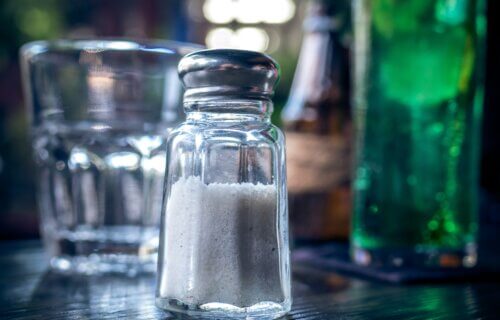EDMONTON, Alberta — People suffering from heart failure who reduce their sodium intake live better, but not longer, scientists have found. Going on a salt detox improves patients’ quality of life and symptoms, but does not save the day, according to a new study.
While people with weak hearts are commonly told to lay off the salt, there has been little scientific evidence to back this up. Now scientists at the University of Alberta in Canada have found that while cutting back on salt is good, it is by no means a silver bullet.
“We can no longer put a blanket recommendation across all patients and say that limiting sodium intake is going to reduce your chances of either dying or being in hospital, but I can say comfortably that it could improve people’s quality of life overall,” says lead author Justin Ezekowitz in a statement.
The study involved 806 patients at 26 medical centers in Canada, the United States and Columbia, Chile, Mexico and New Zealand. All were suffering from heart failure, a common condition whereby the heart becomes too weak to effectively pump blood.
While half the participants were assigned to receive “usual care”, the others were given advice on how to reduce their salt intake. They were given menu suggestions with foods from their own region and encouraged to cook at home without salty ingredients.
“Most dietary sodium is hidden in processed foods or restaurant meals rather than being shaken at the table,” says Ezekowitz, a professor in the Faculty of Medicine & Dentistry at the university. “The broad rule that I’ve learned from dieticians is that anything in a bag, a box or a can generally has more salt in it than you would think.”
Those who received advice on how to cut salt reduced their intake from on average 2,217 mg per day to 1,658 mg per day. In comparison, participants who had not been given any suggestions lowered theirs to 2,072 mg. But there was no difference in how many people died or were admitted to hospital with heart problems.
The condition and quality of life of patients who had cut back on salt did however improve, the researchers found.
“I will continue to advise heart failure patients to cut back on salt, but now I will be clearer about the expected benefits,” notes Ezekowitz. “I urge clinicians to recognise that dietary changes can be a useful intervention for some of their patients.”
The researchers are now looking at ways of identifying patients who would benefit most from a low-sodium diet. They are also planning on checking in with participants after 24 months and five years to see whether there are any long-term benefits.
The findings are published in The Lancet and shared at the American College of Cardiology’s 71st Annual Scientific Session.
Report by South West News Service writer Tom Campbell.
